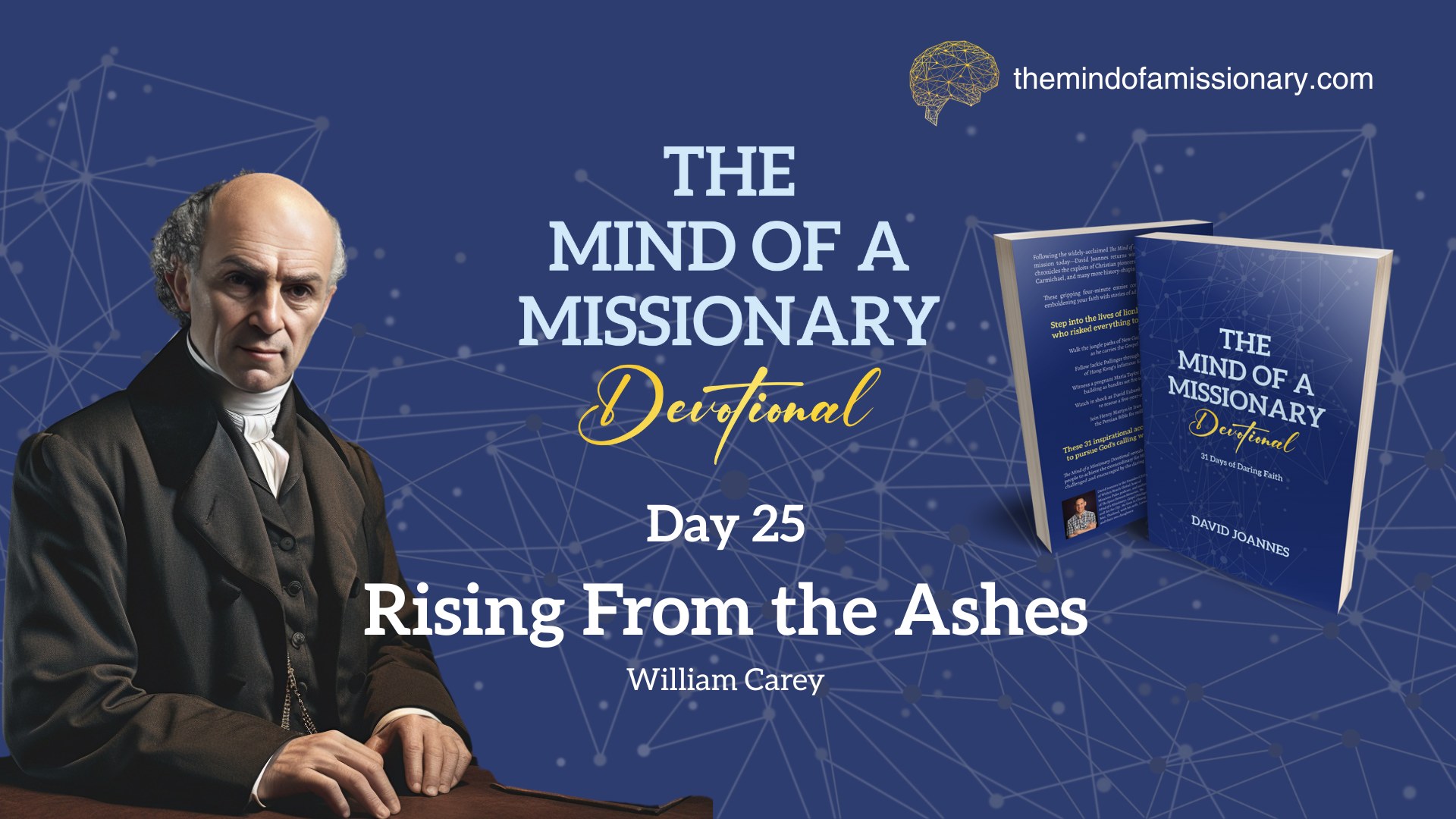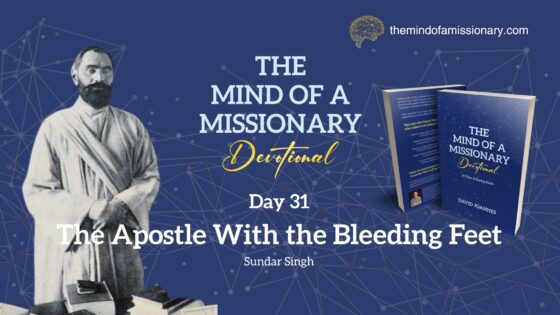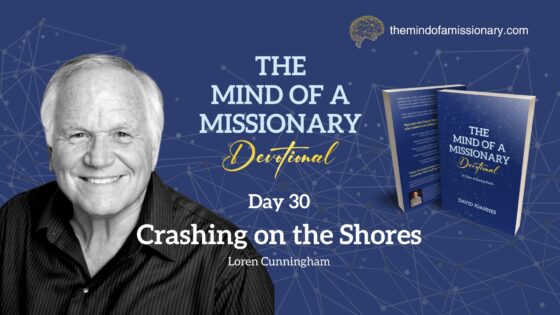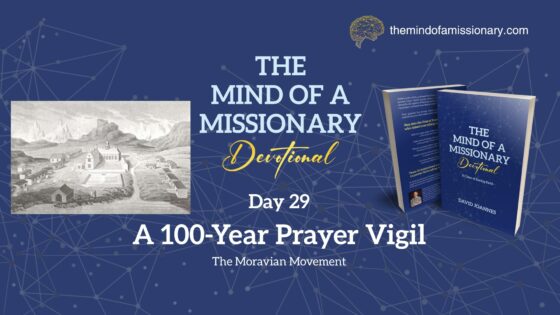Day 25
The Mind of a Missionary Devotional
Rising From the Ashes
William Carey
“I have fought the good fight, I have finished the race, I have kept the faith.” — 2 Timothy 4:7
In 1786, the chairman of a small Baptist ministerial association in England asked the members to propose a subject for discussion. Without hesitation, a young man named William Carey, one of the newest members, suggested that Jesus’ Great Commission command was a charge for every Christian in the room. Surprised by such a radical notion in an era of hyper-Calvinism, the chairman rebuked him. “Young man, sit down!” he boomed. “You are an enthusiast. When God pleases to convert the heathen, He’ll do it without consulting you or me.”
However, the harsh rebuke stoked the flames in the young enthusiast’s heart, and he challenged those around him to “expect great things from God and attempt great things for God.” The burning embers of missionary zeal blazed brighter in Carey’s heart.
As a humble shoemaker from England, William Carey’s early life gave little indication of the monumental impact he would have on global missions. Yet, a divine calling stirred within him, compelling him to venture to distant shores.
On October 2, 1792, Carey formed the Baptist Missionary Society while preparing to sail for India. A gold mine of unreached souls awaited his arrival, but his trip was not a solo mission. “I will go down into the gold mine if you will hold the rope,” he said. His senders were never to leave the mouth of the pit as they hoisted him down to search for gems in the darkness.
On June 13, 1793, Carey uprooted his family to sail for India, arriving in Calcutta seven months later on November 11. With dwindling funds, they scrambled to find food and shelter, moving home five times over the next seven months. The early transition took its toll. William’s wife, Dorothy, was pregnant with their fourth son at the outset of their journey, and the arduous travels, coupled with unforeseen tropical diseases, caused her mental health to deteriorate.
Eleven months later, the Carey family sustained a bitter blow when their five-year-old son, Peter, died. In the next three months, the unimaginable happened. Shortly before March 1795, Dorothy lost all mental capacities, slipping into the devastating grip of psychosis where she remained for the following twelve years until her death.
These immense physical, emotional, and spiritual challenges marked Carey’s early missionary service. Yet, he labored on, saying, “I can plod. I can persevere in any definite pursuit. To this I owe everything.” He was assured of God’s promises and willing to weather every storm.
On the ministry front, the vast linguistic diversity and deeply entrenched religious beliefs of the locals, challenged Gospel momentum. But he believed God could penetrate even the hardest of hearts, and he dedicated himself to learning the local languages, understanding the culture, and building bridges of trust with the people.
One of Carey’s most significant contributions to India was his translation work. He established a print shop, and from there emerged translations of the Bible in Bengali, Sanskrit, and several other major languages and dialects that had never been printed. On March 11, 1812, a devastating fire broke out in the print shop, destroying irreplaceable manuscripts, including much of Carey’s translation of Sanskrit literature. But the man had faced flames before; he would rise from the ashes again. Within six months, the mission was back to printing. By the end of Carey’s life, he had printed and distributed the Bible in whole or part in 44 languages and dialects. Two hundred and twelve thousand copies of his translations reached 300 million people throughout India.
Carey, who later became known as the “Father of Modern Missions,” not only translated the Bible but was also deeply troubled by the social injustices he witnessed, particularly the caste system and the plight of the underprivileged. He initiated educational reforms, starting what is considered the first primary school in India. Using the Bible as a textbook, he introduced children, irrespective of their social standing, to the culture-changing message of Christ.
Carey was a race-runner who threw off every hindrance and entanglement. He ran with perseverance the race marked out for him, fixing his eyes on Jesus (Hebrews 12:1-2). The man who could plod, who rose from the ashes of every fiery challenge, transformed India, inspiring generations of missionaries in the wake of his dedicated service.
– Personal Response –
Passage: I have fought the good fight, I have finished the race, I have kept the faith. (2 Timothy 4:7)
Point: God uses perseverance through pain to accomplish His world-changing plans and purposes.
Ponder: Do you believe God can reveal His glory through your weaknesses and brokenness? What “ashes” in your life might God want to use as the foundation for something eternal?
Prayer: Lord, help me plod with faith when the fire rages. Let me rise again by Your strength and never lose heart. In Jesus’ name, amen.
Proclamation: I will fix my eyes on Jesus and press on—one faithful step at a time—no matter the obstacles standing in my way.
Practice: Choose one difficult area in your life and commit to taking one small, faithful step forward today, trusting God with the outcome.
Learn more about The Mind of a Missionary Devotional at themindofamissionary.com




